Article: François Mauriac’s “A Christmas Tale”
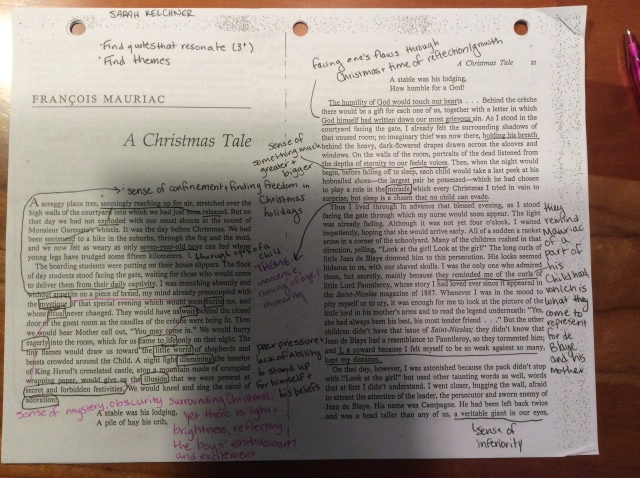
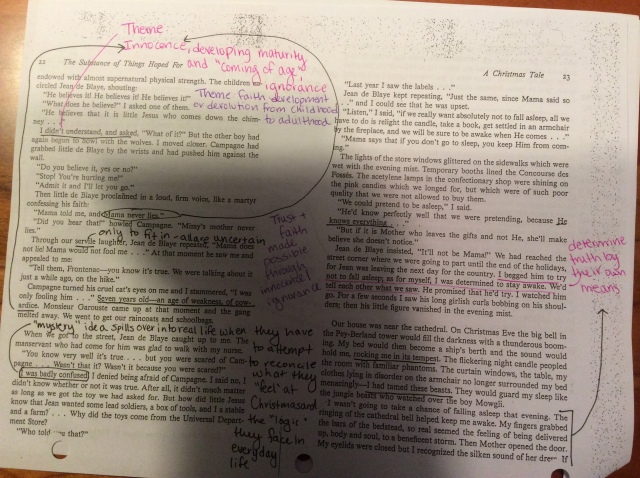
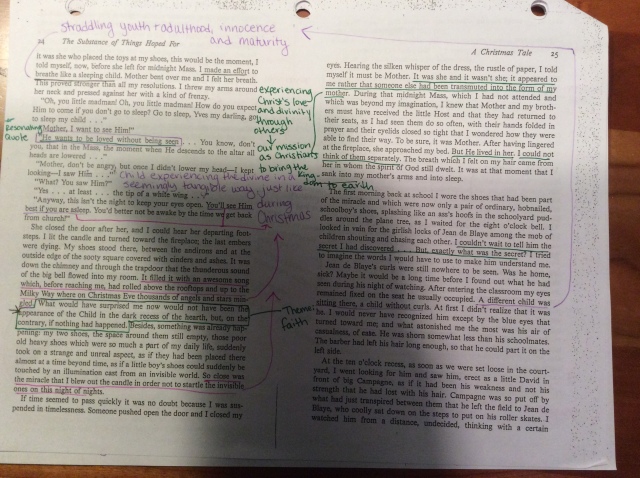
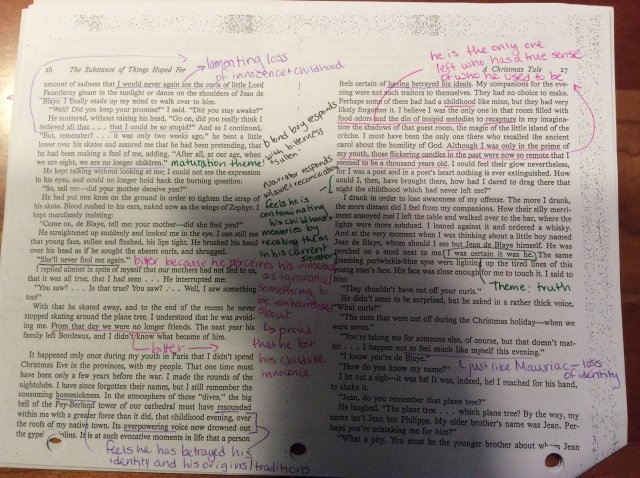
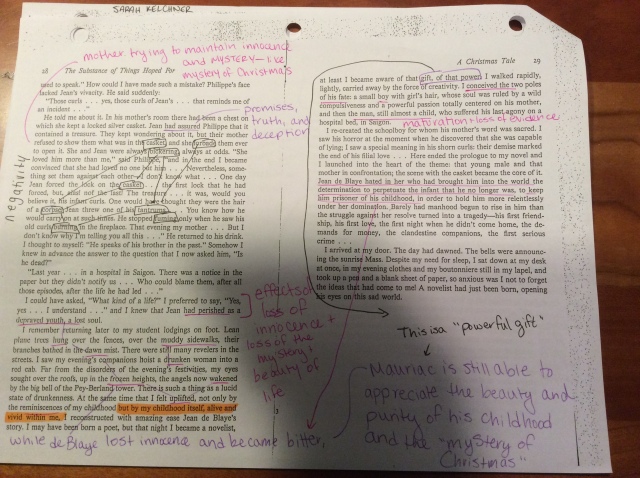 Annotations: Sarah Kelchner
Annotations: Sarah Kelchner
Summary:
(Kat Close)
A Christmas Tale by Francois Mauriac is an intriguing short story recounting the author’s perspective of a dreaded childhood event: realizing that Santa Claus, or in this case little Jesus, is not real. The story follows the author as a child and his innocent friend, Jean de Blaye, as they each discover this seemingly disheartening fact in two very different ways. During the night, the two both stay up at their respective houses in order to witness the miracle of little Jesus coming down to deliver gifts in their shoes. They are both excited to see this occurrence and wait, fully believing in the existence of little Jesus. Unexpectedly, the two boys discover that it has been their mothers laying the gifts upon their shoes rather than Jesus. Jean is devastated by this betrayal and, in that one night, angrily casts away his childhood and steps into a troubled future. On the contrary, the author understands the significance of the moment, knowing that it is ultimately Jesus delivering the gifts through his mother to him. He recognizes that Jesus is found within all, and this acceptance keeps the magic of Christmas alive for him throughout the rest of his life.
Opinions:
Kat Close: As someone who fully believes in the magic of Christmas, I relate with the author’s side of this experience. Despite knowing that the probability of a man on a sleigh traveling the world to deliver gifts to everyone in one night is slim, I also recognize that the magic is more than just Santa Claus. The magic is the experience, it is the feelings and the memories and the time spent hiding the gifts and setting up baby powder footprints through the house. It is watching the Norad Santa tracker while blasting Christmas music and writing letters that mysteriously are answered during the night. Although Santa as a person may not exist, his spirit exists within us all, just like the spirit of God and Jesus exists in us all too.
Matthew Cain: Even though I understand the realities of what Christmas is, I don’t see it as any less special than a child who believes in Santa. I see it as one of the most important ways parents show their love for their children in a way that the children will not be able to fully understand for years, which is a really special sentiment to me. In particular the quote “He wants to be loved without being seen” resonated with me because it made me think about how parents realize that their children won’t understand half of what the parents do for them, yet the parents still do it for love.
Nia Hope: At first I felt a sense of pride for knowing that Santa was not real. I could help my parents recreate the magic of Christmas for my younger brother. However, as I began to accept the truth I realized that I missed the magic of the lie. I can relate to Jean de Blaye, to a degree. For me, every Christmas since the discovery has been a bit tainted. I realize now that although Santa is a lie, the magic and joy around Christmas is not.
Sarah Kelchner: I can’t even remember how young I was when I realized that Santa wasn’t real. In fact, I think I stopped “believing” even before my older brother did. However, in no way did this detract from how I viewed Christmas and the hope of the Christmas season. I understood that the tradition of believing in Santa is only one aspect of the spirit of Christmas and that the concepts of giving without receiving, finding joy in even the unexciting flow of everyday life, and passing on hope to subsequent generations was what truly mattered. I still love Christmastime…so much that I listen to Christmas music all year long. For me, Christmas is a mindset and I tend to respond to it more like Francois Mauriac, not de Blaye–I don’t see the less factual aspects of the Christmas season as reasons become bitter toward childhood and how I was deceived as a kid. Rather, I look back and use my appreciation of those happy moments to look forward in my life.
Landon Clime: I did used to believe in Santa and the whole belief; however, I still love the Christmas time. Whether it is going out and getting gifts for people or blasting my Christmas music in October, I have always loved the season. I tend to agree with the story’s message that it is just about the times. I do not view my parents “lying” to me with spite but with joy. It inspires me to do it with my kids.
First blog post









 Annotations: Sarah Kelchner
Annotations: Sarah Kelchner